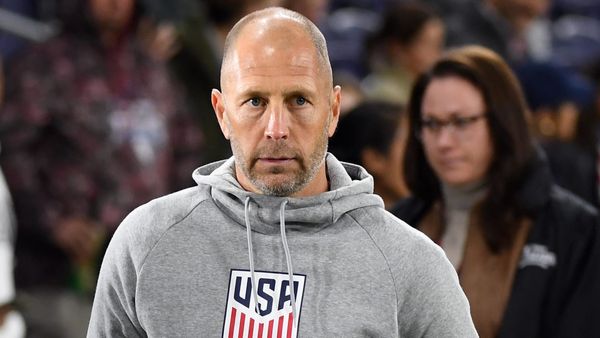
An essential truth about relationships is that everything runs smoothly. Then, actual human beings become involved. Maybe, like myself, you read the piece detailing the gruesome explosive meeting-up of the Daily Mail writer Liz Jones and her ex-husband, Nirpal Dhaliwal, and thought: “Finally, a former couple whose unresolved relationship issues are such a burning wicker man, people like me get to feel relatively smug and well-balanced.”
Jones observes: “There is zero self-awareness. No filter. He doesn’t take the blame for anything.” Even after being extensively (and what must be wearyingly) written about by Jones, Dhaliwal surely doesn’t feel justified in writing of their meeting, “I was mortified at being photographed with her, the whole world knowing I had married her”?
There’s more (I’m keeping it clean) and while you’re willing it to be delicious and funny, it isn’t: it’s ugly, sour, shocking. One core background issue hums throughout like a dark swarm of insects: Jones having such heartbreakingly low self-esteem she seems to think that not only once being married (chosen) but even being divorced, is some kind of life achievement. Certainly, this lunch-date inferno of recrimination serves as a reminder that some relationships end so badly, so engulfed in toxic fumes, that they never properly end at all. Then, there’s the wider issue: why are so many of us so terrible, so incompetent, at ending our relationships? Why aren’t we better at breaking up?
Society and culture mainly focus on romantic beginnings for good reason – it’s the cute “Richard Curtis” bit. At the other end, when the loving feeling has gone belly-up, it can feel like a long-lost George A Romero zombie movie, where, rather than eat brains, protagonists exhaust each other by wrangling over house equity, or who owns the Joseph Joseph chopping-board set. Or maybe that’s making it all sound too exciting. In truth, separations tend to be the “neglected admin” of human relationships that no one ever wants to deal with. Perhaps that’s why, even if they’ve been years in the making, splits often exude the undignified ambiance of rushed homework, retaken exams, missed deadlines. A resting vibe of: “This was bunged in my life in-tray unexpectedly and you’ll all have to be patient while I wing it the best I can.”
Such self-willed helplessness can be lucrative. While there’s support available to get into relationships (dating sites, apps, matchmakers and the like), this is nothing compared with the tooled-up army of knuckle-cracking professionals waiting to winch people out of them. Even when lawyers are involved, and there’s more than enough cash sloshing around, things can become a little unedifying. The actor Kevin Costner just won the right to make his ex-wife leave their house. Fellow thespian Ioan Gruffudd’s split from Alice Evans by now practically requires a hot-button section to itself on MailOnline.
No wonder you get desperate attempts to keep the relationship show on the road, such as the military-esque list of new marital rules said to have been handed by the actress Amy Nuttall to her husband, following his reported affair, as her conditions for continuing the relationship. Such complex scenarios can be understandable because in so many cases there is a lot at stake. Maybe, sometimes, it’s also to try to avoid the humiliation of not only the end of the relationship but also the seemingly never-ending reactions, the rubbernecking and the judgment, as with Jones and Dhaliwal. Why are other people’s bust-ups so fascinating? Is it because, all too easily, it could be you in the separation hot seat? Your turn to be the burnt-out car on the side of the road that everyone slows down to point and gawp at?
If all this isn’t enough to make you want to jump on to a billionaire’s spaceship to Mars and exit civilisation forever, now the UK government is involved in your hot mess. Following the 2021 scheme giving divorcing couples £500 of mediation vouchers, there are plans for mandatory mediation. This simultaneously manages to sound like a superbly sensible idea (steering warring couples towards a resolution) and also a bit like state intervention into the marital version of a siege. Is compulsory mediation for couples going to be the answer? A better question might be, why do so many of us find it so difficult to deal with these endings ourselves?
According to the Office for National Statistics, 41% of couples who married in 1996 had divorced by the time of their 25th anniversary. Then of course, there are unmarried people whose important relationships come to an end. Barring abuse and hopelessly knotted legalities, isn’t fundamentally learning how to end relationships calmly and maturely as important a skill set as knowing how to start them? Mockery of Gwyneth Paltrow and conscious uncouplings aside, isn’t there an argument for people focusing on getting better at it – to recognise The End as being as valid a stage of the relationship life cycle as the beginning? It could be worth thinking about. If it isn’t, stick on Neil Diamond and Barbra Streisand’s You Don’t Bring Me Flowers, and have a good wallow.
• Barbara Ellen is an Observer columnist







